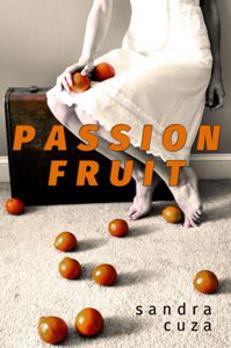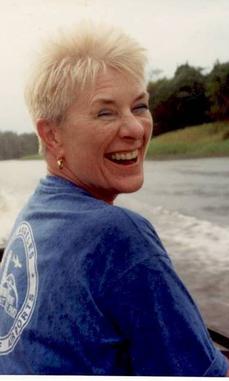© Moronic Ox Literary Journal - Escape Media Publishers / Open Books Moronic Ox Literary Journal - Escape Media Publishers / Open Books
Moronic Ox Literary and Cultural Journal - Escape Media Publishers / Open Books
Novel Excerpts, Short Stories, Poetry, Multimedia, Current Affairs, Book Reviews, Photo Essays, Visual Arts Submissions
Advertise your book, CD, or cause in the 'Ox'
Editor's Notebook
Here and There - Then and Now
by guest editor Sandra Cuza
This week I will, once again, visit the DMV and try for a driver’s license. Like Julia, the protagonist in my book, Passion Fruit (Open Books), I have a Brazilian driver’s license, obtained painlessly and easily even though Brazil requires a very difficult written test as well as eye, physical, psychological and other assorted exams. However, Brazil is blessed with despachantes, a unique body of professionals that probably do not exist elsewhere and, for a price, they help you through any bureaucratic difficulty. They are legal and each specializes in a particular field. Their job is to make problems disappear.
I consulted one who had worked in the São Paulo DMV for a number of years and was listed as a medical consultant for drivers; he maintained a lovely, calm office. There I took an abbreviated eye test, a psychological exam consisting of identifying a few colors and geometric shapes (the despachante assured me that I could take this test for my husband as well), asked me to lift a book, charged me quite a bit of money and my license arrived about ten days later. In France I could have exchanged my Brazilian license for a French one but didn´t get around to it.
Now that I am a U.S. resident again I must get a state driver’s license, so two weeks ago I sailed confidently into the DMV. Lots of employees milling busily behind the counter, all vigorously chewing gum but only two clerks were attending the chaotic mass of clients. After a two hour wait my name was called, and I presented my passport, Brazilian driver’s license, telephone bill, electricity bill and copy of my Social Security card. I was very firmly told that I need my original social security card, not a copy. Well, during the two decades I lived in Brazil I had managed to lose this piece of paper, so off I went to the Social Security office. The staff was efficient and pleasant and in two weeks a new, original card arrived. Again I went to the DMV and after waiting for two and a half hours, the clerk looked at my papers and said, “The name on your Social Security card isn´t the same as the one on your passport…your passport has your maiden name as a middle name and the Social Security Card says Sandra Cuza. Did you officially drop your maiden name?” I said, “Of course not. Why would I do that?” “But how can we connect you with the woman in the passport?” I said, “Call Social Security and give them my number – it´s the number that counts.” “But how do we know it´s you?” she asked, waving my passport. “Look at the picture.” About 5 clerks all looked at me, then at my passport photo, then at me and one said, “It looks like you”. I said, “It IS me”. The chief clerk shook her head. “Sorry, you’ll have to change the name on your passport.” Was I hallucinating here, having some kind of out of body experience of the most negative kind? “No, that´s impossible.” “Then go to Social Security and get a card that matches the passport.”
Back to Social Security. I explained that the DMV wanted the name on my card and my passport to be identical and the clerk said, “We´ll give you any name you want.” Any name? For a moment I had visions of presenting the DMV clerks with a card that read Queen Victoria, but reality set in. I hadn´t detected a hearty sense of humor in that office and I did not want to spend my life questing after a driver’s license. Forgetting the crime, pollution, traffic and poverty, I had definite saudades – wistful longing for Brazil. Where are you, despachante, when I need you?
About Sandra Cuza
Sandra Cuza was born in Kansas and raised in Los Angeles. After graduating with a BA from Mills College, she moved to London where she lived for nine years and worked as a reader for CBS films, a waitress, an actress in food commercials and a teacher in a state school for maladjusted youths. Her first book was based on the latter experience and was made into a feature film which she co-wrote, launching her career as a writer.
Two more novels were published on her return to California where she worked as a waitress, earned an MA and devised and taught a Creative Writing course at UCLA. After moving to São Paulo, Brazil twenty one years ago, she condensed the UCLA course and taught it annually under both the auspices of the American Society and São Paulo´s largest language school. She wrote articles, short stories and a cookbook of Brazilian recipes, was on the Board of a Brazilian children’s charity and was active in the community affairs section of the American Society.
She has lived in Orleans, France, for the past year.
About the book
Happily married and living in Venice Beach, California, television executive Julia Elliott’s orderly life collapses when her husband is sent to Brazil for a two-year assignment by his company. Knowing that she will not be rehired once she leaves her job, she nevertheless agrees to follow him to the land of sunshine, tropical fruit and string bikinis.
But on arrival in São Paulo, Julia is shocked to discover that the city is marred by chaotic traffic, pollution, endemic graffiti and appalling slums. This is not the exotic paradise she envisioned.
As her husband works the long hours typical of American businessmen in São Paulo, their marital relationship frays; and remembering warnings about glamorous, seductive Brazilian women, Julia becomes concerned about her husband’s late nights and weekends at the office.
Is her husband having an affair with his gorgeous secretary? And how does Julia really feel about Max Calhoun, the married, off-beat minister that she’s met at an ex-pat theatrical group she joins?
Passion Fruit explores the personal and social lives of ex-pat wives following their husbands along the path of international business: the challenges are momentous, and the consequences of bad decisions are life-changing. Yet through it all another Julia emerges, and the ‘other Julia’ is indeed a pièce de résistance.



